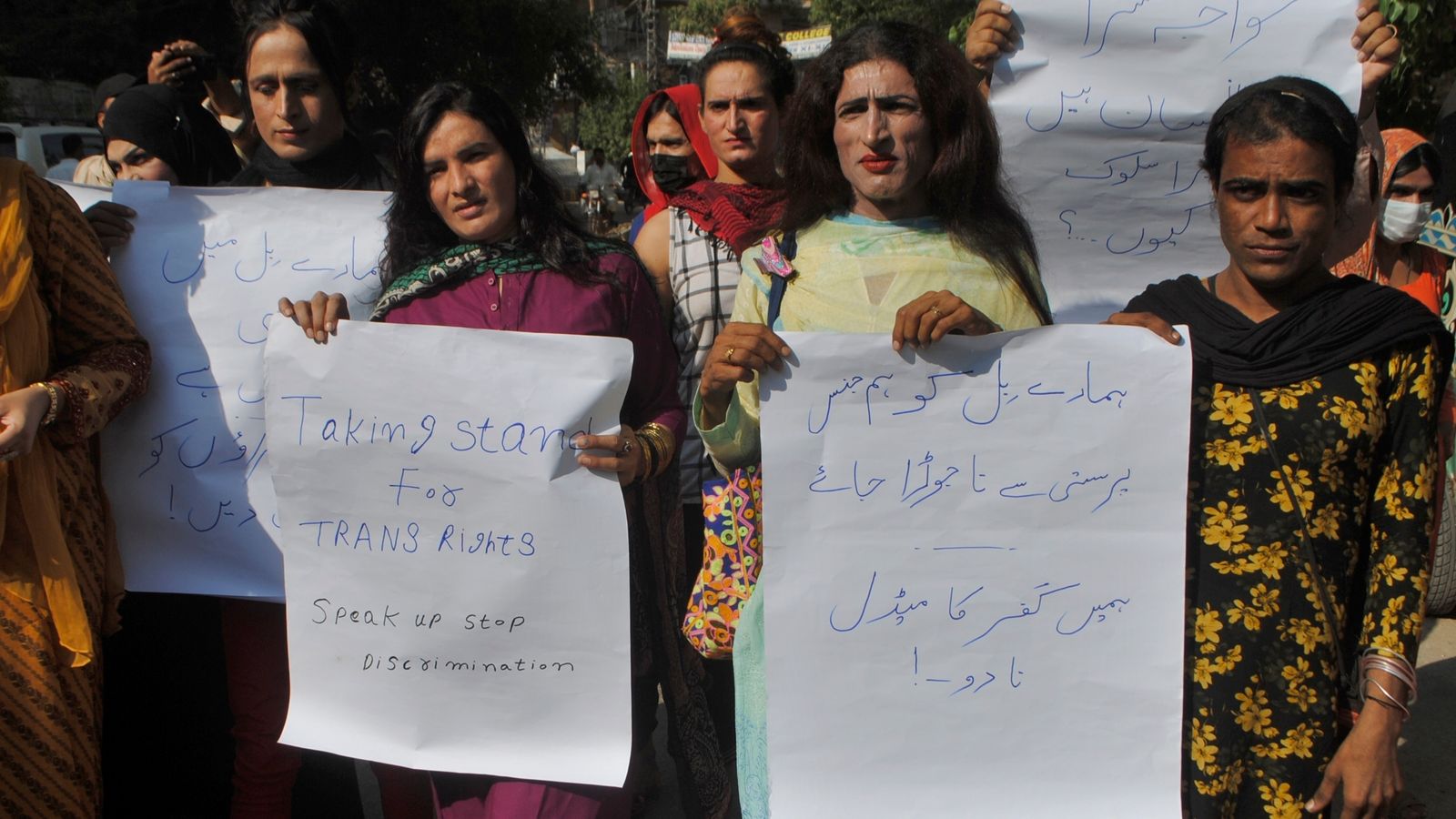Pakistan has launched a hotline for transgender people in an effort to protect them from discrimination and harassment.
Salman Sufi, an adviser to Prime Minister Shahbaz Sharif, revealed on Twitter that the hotline was live and ready to receive calls.
The calls would be directed to top police officers and the Ministry of Human Rights.
Almas Bobby, a spokesperson for the Pakistani trans community, said trans people were “glad” the hotline had been set up but still expressed some frustration.
She said that in most instances of harassment, trans Pakistanis are either beaten, harangued or publicly arrested by the police.
She added: “How can we call on this hotline when our phones are snatched? When we are arrested like a robber from wedding parties where we have to perform and earn?
“Who harasses us the most? Yes, indeed, the police. And we will have to call the police to seek justice.”
Seven rugby players withdraw from match in protest over LGBT rainbow shirt
Seven rugby players withdraw from match in protest over LGBT rainbow shirt
Russia’s number one ranked tennis player Daria Kasatkina comes out as gay
She estimates there are about 10,000 trans people living in Pakistan.
The hotline has been announced as the Pakistani government attempts to pass an amendment to a 2018 transgender rights bill to allow people to choose their gender identity for documents such as identity cards and education certificates.
However, the proposed amendments have sparked opposition, with hardline clerics and conservative politicians in the majority Islamic country vociferously opposing them.
Senator Mushtaq Ahmad Khan, a member of the conservative political party Jamat-e-Islami, said that allowing citizens to choose their own gender identity is a “danger to the family and inheritance systems,” and “opens the door for 220 million people to choose to be anything”.
Read more from Sky News:
Bentley Mulsanne stolen from London discovered in Pakistan
Record-breaking rains threaten 4,500-year-old archaeological site
Pakistan uses the Islamic system of inheritance, which divides assets among descendants based on gender, giving men twice as much as women.
The act carries over this style of division to the trans community, stipulating that a trans man would also get double that of a trans woman.
Last year, the first government-run school for transgender students was opened in the central city of Multan, with promises to set up similar schools in the future.
In 2019, Pakistan’s Supreme Court issued a landmark ruling designating trans people as a third gender. Previously, trans people were frequently denied medical treatment because doctors couldn’t decide whether to put them on a male or a female ward.








